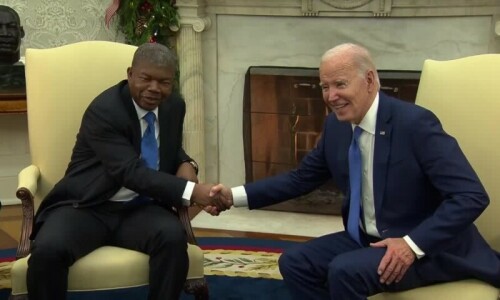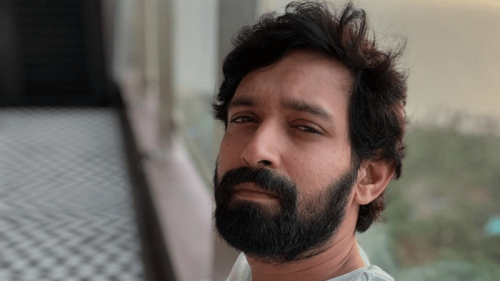NEW YORK, Sept 11: There is no consensus in Muslim countries about the perpetrators of 9/11 attacks as significant minorities cite the US government itself and in a few countries Israel. These responses were given to an open-ended question that did not offer response options.
According to a survey by WorldPublicOpinion, 46 per cent say that Al Qaeda was behind the attacks while 15 per cent say the US government, 7 per cent Israel, and another 7 per cent some other perpetrator. Twenty-five per cent say they do not know.
“Given the extraordinary impact the 9/11 attacks have had on world affairs, it is remarkable that seven years on there is no international consensus about who was behind them,” comments Steven Kull, director of WorldPublicOpinion.org.
Even in European countries, the majorities that say Al Qaeda was behind 9/11 are not overwhelming. Fifty-six percent of Britons and Italians, 63 percent of French and 64 percent of Germans cite Al Qaeda. However, significant portions of Britons (26 per cent), French (23 per cent) and Italians (21 per cent) say they do not know who was behind 9/11. Remarkably, 23 per cent of Germans cite the US government, as do 15 per cent of Italians.
People in the Middle East are especially likely to name a perpetrator other than Al Qaeda. In Egypt 43 per cent say that Israel was behind the attacks, as do 31 per cent in Jordan and 19 per cent in the Palestinian Territories.
The US government is named by 36 per cent of Turks and 27 per cent of Palestinians. The numbers who say Al Qaeda was behind the attacks range from 11 per cent in Jordan to 42 per cent in the Palestinian Territories.
The only countries with overwhelming majorities citing Al Qaeda are the African countries: Kenya (77 per cent) and Nigeria (71 per cent). In Nigeria, a large majority of Muslims (64 per cent) also say that Al Qaeda was behind the attacks (compared to 79 per cent of Nigerian Christians).
The poll of 16,063 respondents was conducted between July 15 and August 31 this year by WorldPublicOpinion.org, a collaborative research project involving research centres from around the world and managed by the Programme on International Policy Attitudes (PIPA) at the University of Maryland. Margins of error range from plus or minus 3 to 4 per cent.
Interviews were conducted in 17 countries, including most of the large nations --- China, Indonesia, Nigeria and Russia --- as well as Egypt, France, Germany, Great Britain, Italy, Jordan, Kenya, Mexico, the Palestinian Territories, South Korea, Taiwan, Turkey and the Ukraine.
Respondents were asked: “Who do you think was behind the 9/11 attacks?” The answers were categorised into four response groups: “Al Qaeda”, “the US government”, “Israel”, or “other”. Any answers that approximated Al Qaeda --- such as “Bin Laden” or “Islamic extremists” --- were categorised along with those who said “Al Qaeda”. Those who simply characterised the perpetrators as “Arabs”, “Saudis” or “Egyptians” (3 per cent on average) were included in the “other” category.
Respondents in Asia have mixed responses. Bare majorities in Taiwan (53 per cent) and South Korea (51 per cent) name Al Qaeda, but 17 per cent of South Koreans point to the US government and large numbers in both countries say they do not know (Taiwan 34 per cent and South Korea 22 per cent).
Majorities of Chinese (56 per cent) and Indonesians (57 per cent) say they do not know, with significant minorities citing the US government (Indonesia 14 per cent and China 9 per cent).
A clear majority of Russians (57 per cent) and a plurality of Ukrainians (42 per cent) say Al Qaeda was behind the attacks. But significant minorities identify the US government (15 per cent in both cases) and large numbers do not provide an answer (Ukrainians 39 per cent and Russians 19 per cent).
Of all the countries polled, Mexico has the second-largest number citing the US government as the perpetrator (30 per cent after Turkey at 36 per cent). Only 33 per cent name Al Qaeda.
Though people with greater education generally have more exposure to news, those with greater education are only slightly more likely to attribute 9/11 to Al Qaeda. Steven Kull comments: “It does not appear that these beliefs can simply be attributed to a lack of exposure to information.”
A stronger correlation of beliefs about 9/11 are respondents’ attitudes about the United States. Those with a positive view of America’s influence in the world are more likely to cite Al Qaeda (on average 59 per cent) than those with a negative view (40 per cent). Those with a positive view of the United States are also less likely to blame the US government (7 per cent) than those with a negative view (22 per cent).













































Dear visitor, the comments section is undergoing an overhaul and will return soon.